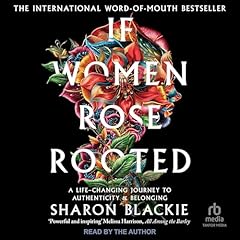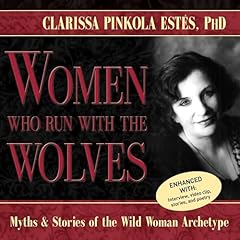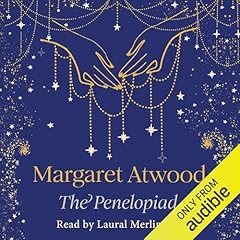
The Heroine with 1001 Faces
No se pudo agregar al carrito
Add to Cart failed.
Error al Agregar a Lista de Deseos.
Error al eliminar de la lista de deseos.
Error al añadir a tu biblioteca
Error al seguir el podcast
Error al dejar de seguir el podcast
Prueba gratis de 30 días de Audible Standard
Compra ahora por $21.94
-
Narrado por:
-
Julie McKay
-
De:
-
Maria Tatar
World-renowned folklorist Maria Tatar reveals an astonishing but long buried history of heroines, taking us from Cassandra and Scheherazade to Nancy Drew and Wonder Woman.
How do we explain our newfound cultural investment in empathy and social justice? For decades, Joseph Campbell had defined our cultural aspirations in The Hero with a Thousand Faces, emphasizing the value of seeking glory and earning immortality. His work became the playbook for Hollywood, with its many male-centric quest narratives.
Challenging the models in Campbell's canonical work, Maria Tatar explores how heroines, rarely wielding a sword and deprived of a pen, have flown beneath the radar even as they have been bent on social missions. Using the domestic arts and storytelling skills, they have displayed audacity, curiosity, and care as they struggled to survive and change the reigning culture. Animating figures from Ovid's Philomela, her tongue severed yet still weaving a tale about sexual assault, to Stieg Larsson's Lisbeth Salander, a high-tech wizard seeking justice for victims of a serial killer, The Heroine with 1,001 Faces creates a luminous arc that takes us from ancient times to the present.
©2021 Maria Tatar (P)2021 TantorLos oyentes también disfrutaron:




















Las personas que vieron esto también vieron:





Thank you, Maria, for such a beautiful book! Highly recommended!
Great content
Se ha producido un error. Vuelve a intentarlo dentro de unos minutos.
Excellent perspective
Se ha producido un error. Vuelve a intentarlo dentro de unos minutos.
Amazing
Se ha producido un error. Vuelve a intentarlo dentro de unos minutos.
An troubled woman
Se ha producido un error. Vuelve a intentarlo dentro de unos minutos.
A glance over Netflix’s thumbnail posters of their offerings makes it abundantly clear that male heroes are the norm in storytelling and the author discussed this imbalance, but without providing a remedy. Hollywood uses the hero’s journey, as detailed by Joseph Campbell, like a form letter. That is unlikely to change unless they get an alternative version for heroines that is just as powerful. I had hoped that Maria Tatar would provide that, or at least put forth a blueprint for creating it, but all she did was catalog the myriad ways women get left behind in history, in popular culture and in life.
Instead of learning about what made and motivated heroines I heard one horrific story after another about how women struggled to be seen and heard, and how they paid for their bravery with the loss of their lives and liberty. Instead of hearing stories of how heroines took charge of their own destinies I heard about how they made the best of their subjugation and victimization. The book was scholarly and well-researched, but it was more of a report on that research than a thesis with ideas and strategies for changing the male-dominated narrative. I found the book informative and thought-provoking, but ultimately discouraging and disappointing.
The narrator had the daunting task of pronouncing long, difficult names in many languages, and overall did a good job. Nevertheless, she undermined the credibility of the book by mispronouncing the surname of Emmeline Pankhurst as “Parkhurst” in a chapter celebrating the suffragist movement. She also mispronounced “bow” (of a ship), giving it a long “o” sound, as in “bow tie”. But overall, her voice was strong, confident and easy to listen to, which is an accomplishment in a book of this length.
In summary, this book was well-researched, well-written and well-narrated, but I found it overly long, repetitive and frustrating. Perhaps that was due to my expectation that I would be given a strong female archetype to match Campbell’s male hero, and a model for the heroine’s journey that would be uniquely female but equal to that of the traditional male hero. Instead I got an extensive chronicle of gender and racial inequality through the ages, with little hope for change any time soon.
Men Get Myths, Women Get Fairy Tales
Se ha producido un error. Vuelve a intentarlo dentro de unos minutos.


